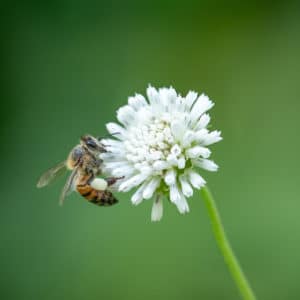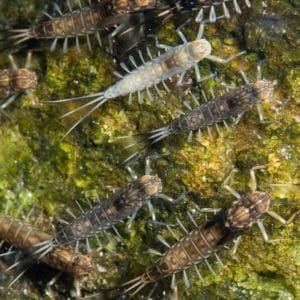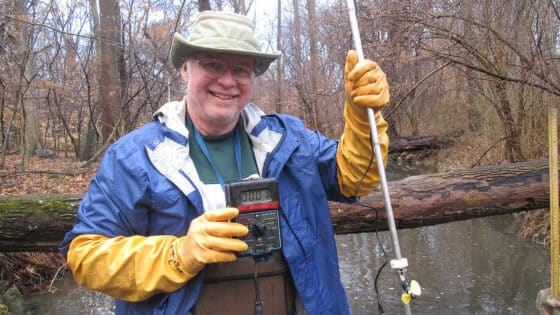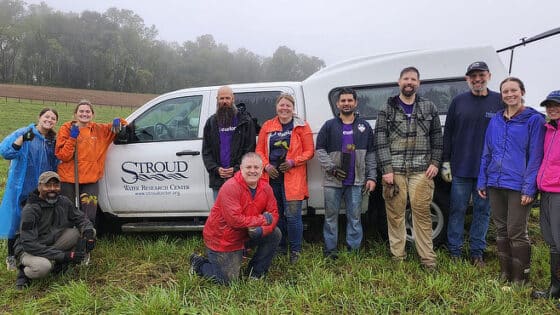
The most widely used pesticides worldwide are the subject of a new Stroud Water Research Center study funded by the Prince Albert II of Monaco Foundation.
These pesticides aren’t sprayed onto fields of golden barley, wheat, and other crops. Instead, neonicotinoids are often used to coat seeds before they are planted. They are valued as a cost-effective way to protect crops from pests. They are water soluble, and as such, are taken up by the developing plants they are meant to protect from pests. Insects, including pollinators like honeybees, that feed on the crops are exposed to the toxin. Initially, neonicotinoids were intended to be a more sustainable alternative to older pesticides that were toxic to many more classes of organisms.
Honeybees have been at the center of concerns over neonicotinoid use, and evidence showing indirect effects on multiple other organisms such as birds, bats, and amphibians is growing rapidly.
After years of concern about the widespread use of neonicotinoids, in April 2018, the European Union widened regulations on these insecticides by completely banning all outdoor uses. Their application in major agricultural crops in the United States remains largely unregulated.

Worryingly, recent studies in the United States have demonstrated the presence of neonicotinoids in waterways near agricultural areas with increased concentrations associated with rainfall during crop planting.
Approximately 95 percent of a neonicotinoid application washes into soil, streams, lakes, and elsewhere into the surrounding environment.
This is potentially devastating for biodiversity given that aquatic insects, the most sensitive organisms to these pesticides, function as a critical base of the aquatic food chain, and disruptions to the freshwater insect population cascade rapidly through the ecosystem.
The new Stroud Center study, led by Associate Research Scientist Melinda Daniels, Ph.D., looks at how neonicotinoids affect soil health and water quality across three pairs of farm fields planted with coated and uncoated seeds.
Daniels explains, “We are hoping to better understand the water pathways that neonicotinoids take as they leave the seed coating and move through the soils and eventually into streams, lakes, and wetlands where they impact the aquatic insect populations.”
“If we can better understand these pathways, perhaps new technologies can be developed to limit the mobility of neonicotinoid compounds into aquatic ecosystems.”
Learn more in Neonicotinoids: From Your Fields to Your Streams
###
About Stroud Water Research Center
Stroud Water Research Center advances knowledge and stewardship of freshwater systems through global research, education, and watershed restoration and to help businesses, landowners, policymakers, and individuals make informed decisions that affect water quality and availability around the world. Stroud Water Research Center is an independent, 501(c)(3) not-for-profit organization.
Contact: Diane Huskinson, Communications Manager and Editor



